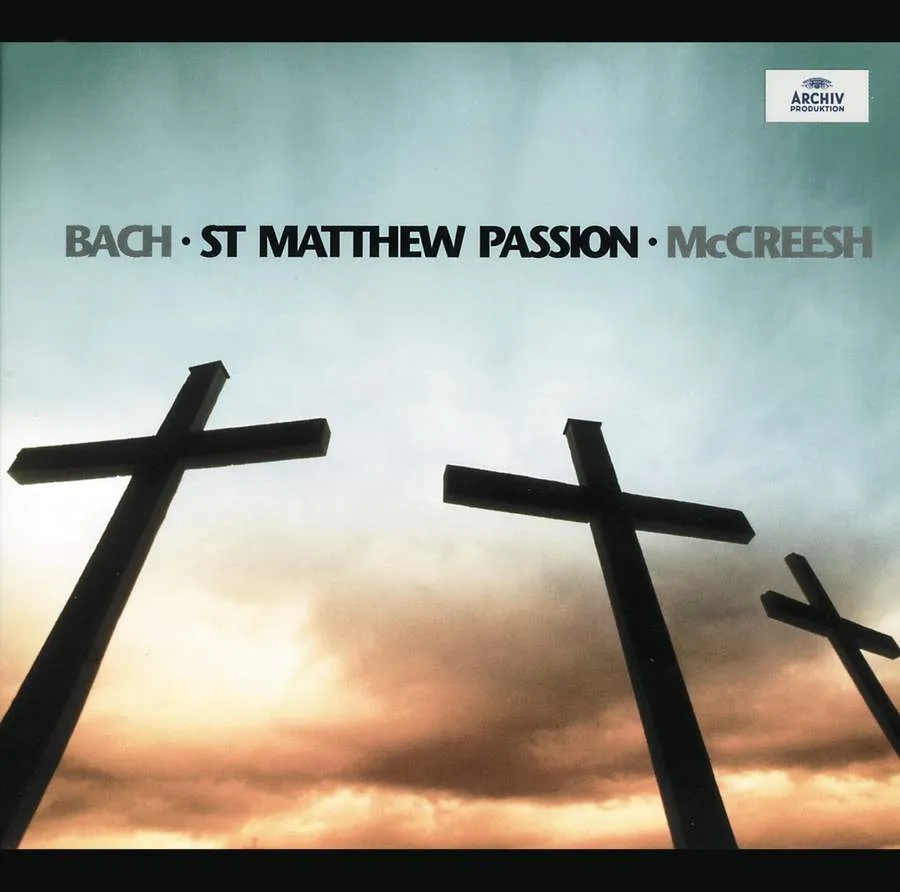
JS Bach St Matthew Passion Deborah York, Julia Gooding (soprano), Magdalena KozŠená, Susan Bickley (mezzo-soprano), Mark Padmore, James Gilchrist (tenor), Stephan Loges (baritone), Peter Harvey (bass); Gabrieli Consort & Players/Paul McCreesh DG Archiv 474 200-2
Over two decades ago, Joshua Rifkin put theory into practice by recording Bach’s B minor Mass with just one singer to each part. Scholarly arguments over such economical forces have raged ever since, sometimes vitriolically, but McCreesh is the first to hazard them in the St Matthew Passion. The solo narrative is unaffected. Mark Padmore (Evangelist) describes events vividly, respecting Bach’s underlying recitative pulse but varying the dramatic pace freely, from perfunctory description of simple events to high drama – Peter’s weeping, Judas’s suicide. Peter Harvey characterises Jesus subtly, human rather than heroic. Roskilde Cathedral’s superb new organ provides some mighty colouring, reeds snarling as the earth quakes and rocks are rent, cleverly balanced by the recording. But one-to-a-part choruses, while often revelatory in the metaphysical context of a cantata, do not have mass enough to portray a horde of demonstrators howling for blood in this most theatrically inspired Passion.
At the monumental level, too, this ‘choir’ is a challenging contrast to my benchmark, Ton Koopman’s 34 fluent voices. Although careful engineering ensures acceptable recorded balance with equally small-scale instruments, the cutting-edge clarity of close-recorded solo voices masks the individuality of instruments. Particularly in the (divided) opening chorus, ‘Come ye daughters, share my mourning’ (for McCreesh, ‘celebratory’ and taken astonishingly fast), eight voices with barely audible added ripieno soprano compete with, rather than complement, the instrumental lines – the effect is strangely of less rather than more clarity.
The lyrical elements – the arias – are beautifully managed, particularly in the striking moments of elation, pairs of oboes and their d’amore/da caccia relations, flutes, and solo and ensemble strings dancing with light-footed articulation and sparkling organ continuo. The eight vocalists create an effectual congregation in their devotional role, singing heartfelt chorales mercifully free from sanctimonious pauses.
A provocative and compelling recording that has to be heard, whatever your final judgement of it may be.
Read more reviews of the latest JS Bach recordings
George Pratt